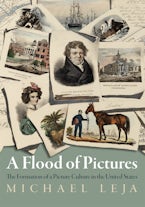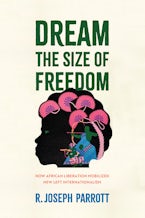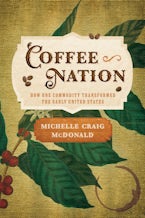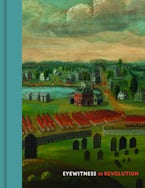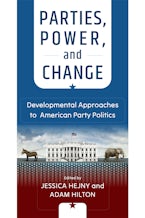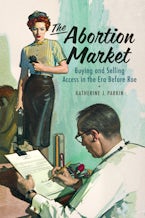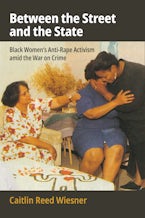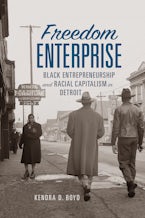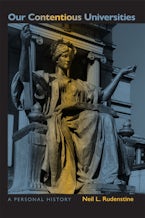"[A]n excellent new work of scholarship...Zubovich shines light on a dim corner of recent American history: the integral role that liberal, ecumenical Protestant leaders played in American liberalism in the mid-20th century, along with the underappreciated ways they helped drive the polarization that broke apart the mainline, opened the way for the Religious Right, and shaped our present moment."—Christianity Today
"Before the Religious Right is sweeping in its breadth as historian Gene Zubovich examines the alliance between midcentury ecumenical Protestants and liberal politics in the United States. While dozens of books have examined conservative religion and politics in the United States, Zubovich's book argues for the importance of ecumenical religious institutions and activists in the rise of the consensus liberalism."—New Rambler Review
"[An] essential work...In this extensively detailed, impeccably researched, powerfully argued book, Gene Zubovich contends that a particular form of ecumenical Protestantism 'was at the heart of mid-century liberalism.'"—Reading Religion
"Epic is a word rarely used in the same sentence as 'ecumenical Protestantism,' but Gene Zubovich has written a truly epic account of how ecumenical Protestantism transformed American politics between the 1920s and 1970s."—The Christian Century
"[A]n intellectual, religious, and transnational history of American ecumenical Protestants in the middle of the twentieth century. Well written and clearly argued, the book explores the intersection of race, religion, and rights for what are often described as mainline Protestants."—H-Diplo
"[A]n exhaustive profile of how mainline Protestant theology influenced views on diverse issues including human rights, segregation, and economic policy in the period from the 1920s through the early 1960s..[T]he book is a thorough account of how mainline Protestant theology influenced US and world events during the mid-twentieth
century.
"—Perspectives on Politics
"Before the Religious Right is well written and accessible. It is bold in its argumentative scope yet thorough in its supporting evidence...It should become required reading for anyone interested in the connections between religion and US liberalism as well as religion and US conservatism. In fact, this book’s methodological insights should be useful for anyone thinking about how to connect the structure of religious communities with their historical impact."—American Religion
"[A] powerful reconsideration of the assumed relationship between American Protestant Christianity and twentieth-century politics...Before the Religious Right is a trenchant examination of an overlooked dimension of American religion and politics; it is amuch-needed reminder of the impact that twentieth-century liberal Protestants had on international political institutions, on the dismantling of legal segregation in America, and on the establishment of human rights discourse."—The Review of Politics
"Zubovich’s account of how ecumenical Protestants pushed the national political agenda to the left on economics, foreign policy, and civil rights is insightful, but his analysis of why ecumenical Protestants came to embrace these causes is perhaps even more pathbreaking...Although there have been several studies of the political activism of the National Council of Churches and the civil rights work of liberal white Protestant ministers in the mid-twentieth century, Before the Religious Right is by far the most comprehensive, detailed, authoritative study of American ecumenical Protestant politics that has yet been published. This is the definitive account not only of how ecumenical Protestant church leaders shaped American liberalism but also how they came to embrace these causes."—Church History
"[A]n impressive addition to scholarship that contributes to understanding of the link between religion and politics and documents the relationship between liberal Protestant institutions and the creation of the liberal politicalorder in the United States. This historical narrative is critical to understanding the history of
the New Deal, the creation of the United Nations, desegregation, and the Great Society...One hopes that Before the Religious Right will find an audience not just with scholars but with anyone who wants to understand how religious groups have shaped American political life.
"—Journal of Law and Religion
"Before the Religious Right constitutes a bold and pathbreaking piece of scholarship. It offers a needed corrective to the historiography of American religion...In a moment when American Protestantism’s political witness arguably remains as contested and fractured as ever, this book deserves to be widely read and discussed, not only by faith-based historians in the academy, but also by everyday congregants looking for historical wisdom for faithful living in the present."—Fides et Historia
"Before the Religious Right should be required reading for historians of American religion. Elegantly written, deeply researched, and clearly argued, it sets a new standard in the study of American liberal Protestantism."—The Journal of Religion
"In his ambitious, absorbing, much-anticipated book, Gene Zubovich shows how midcentury liberal Protestants in the United States used changes in the international system and domestic race relations to forge a new human-rights discourse for a global age. Zubovich’s writing is elegant, his extensive research is deeply impressive, his focus is broad but cohesive, and his historiographical contributions are significant. Before the Religious Right is an important book that will be essential reading for anyone interested in American religion, politics, or foreign relations."—Andrew Preston, author of Sword of the Spirit, Shield of Faith: Religion in American War and Diplomacy
"In this beautifully nuanced and carefully researched account, Gene Zubovich puts religious history at the center of the history of human rights. He does so in ways that acknowledge the ambiguity and complexity of human rights politics, while restoring the centrality of Protestant liberals to a transnational history of activism that linked challenges to white supremacy (at home and abroad), debates over economic justice, and critiques of U.S. foreign policy. This is not only one of the best histories of Protestant liberalism we have, it also thoroughly revises historians’ accounts of the role of the United States in the world from the 1920s to the 1960s. An outstanding work of scholarship."—Melani McAlister, author of The Kingdom of God Has No Borders: A Global History of American Evangelicals


